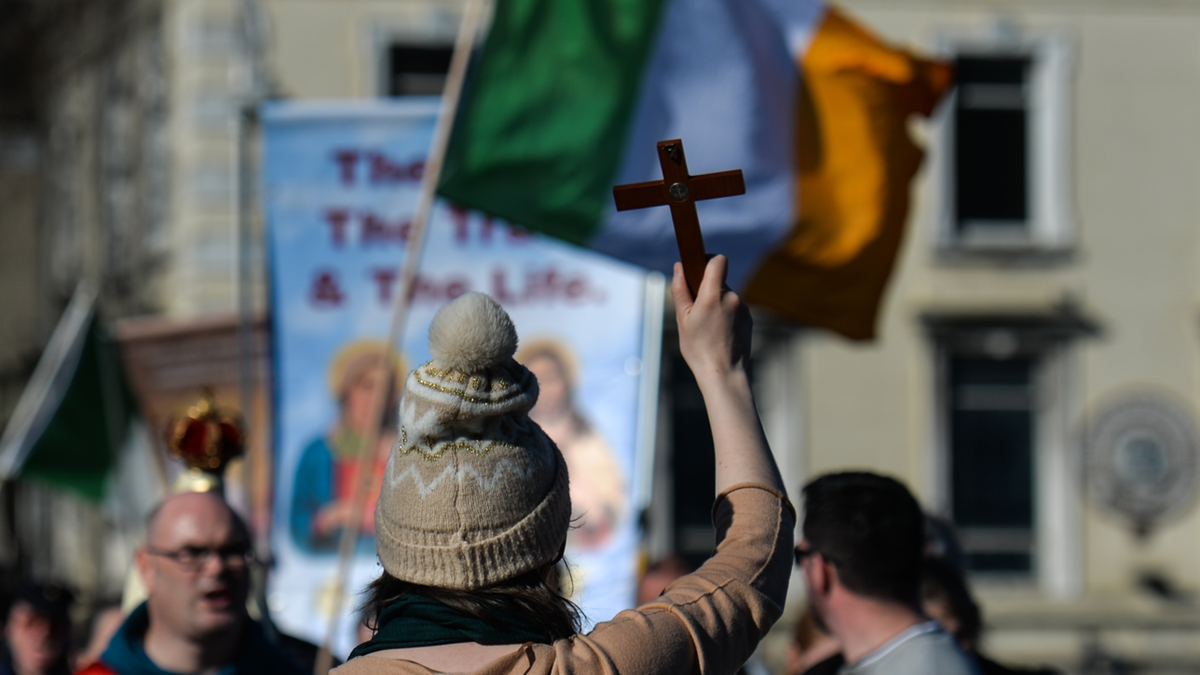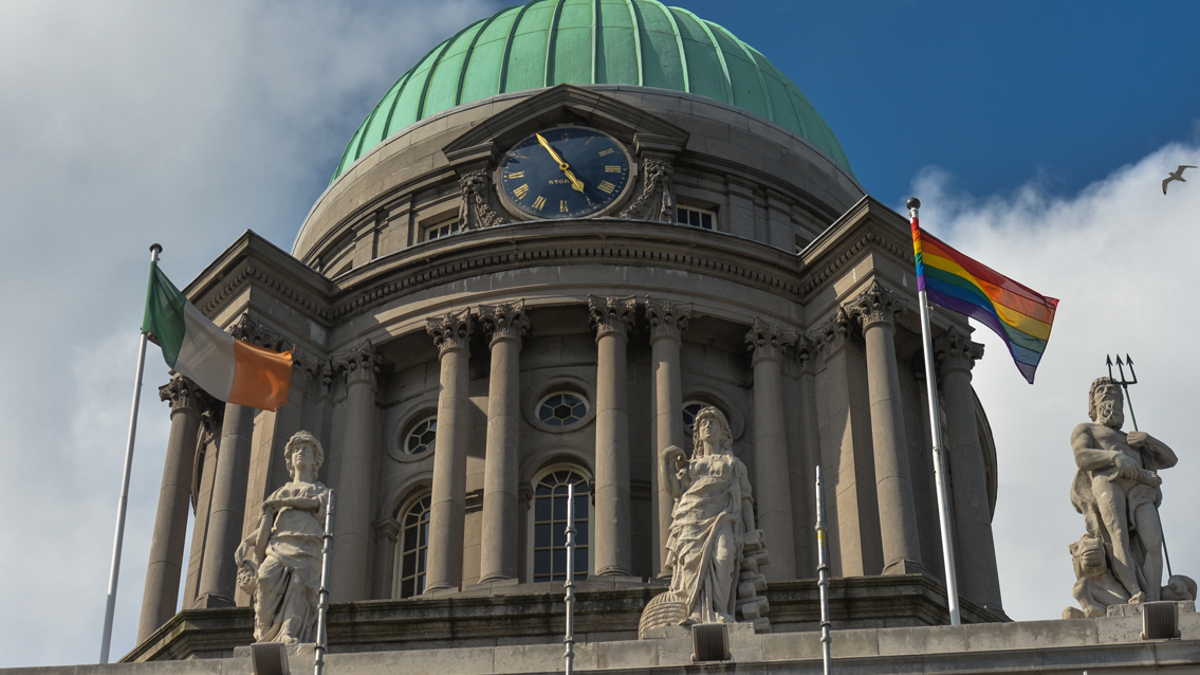Biden refuses to take questions with Irish leader
President Biden on Friday ignored reporters' questions one day after White House press secretary Karine Jean-Pierre defended not holding a typical "two plus two" press conference with Ireland's prime minister, Leo Varadkar.
A bill currently being considered by the Irish government could jail citizens for merely possessing material that criticizes certain protected characteristics, ranging from gender identity to national origin.
The Irish Criminal Justice Bill is supposed to target "hate speech" but some critics have compared it to the concept of punishing people for "thoughtcrime," a term popularized by George Orwell's dystopian novel "1984."
The text of the "Criminal Justice (Incitement to Violence or Hatred and Hate Offences) Bill 2022," notes that a person can be imprisoned if they "prepare or possess" material that is "likely to incite violence or hatred against a person or a group of persons on account of their protected characteristics or any of those characteristics with a view to the material being communicated to the public or a section of the public, whether by himself or herself or another person."
The bill includes a variety of "protected characteristics" that one can be prosecuted for criticizing, including, race, color, nationality, religion, national or ethnic origin, descent, gender, sex characteristics, sexual orientation, or disability.

A woman carries a cross in Dublin, Ireland as many people take part in a religious procession through Dublin city center, with worshipers carrying a statue of Our Lady of Fatima, on St. Patrick's Day. (Photo by Artur Widak/NurPhoto via Getty Images)
The text says, "’gender’ means the gender of a person or the gender which a person expresses as the person’s preferred gender or with which the person identifies and includes transgender and a gender other than those of male and female."
In short, those owning a Bible or texts with basic Catholic teaching about the Bible’s approach to sexual morality could be prosecuted if this bill becomes law in Ireland.
The bill also appears to take a "guilty until proven innocent" approach.
"In any proceedings for an offence under this section, where it is proved that the accused person was in possession of material such as is referred to in subsection (1) and it is reasonable to assume that the material was not intended for the personal use of the person, the person shall be presumed, until the contrary is proved, to have been in possession of the material in contravention of subsection (1)," the bill states.
While one section, "Protection of freedom of expression," appears to make assurances that some speech will be protected in exceptional cases, the wording remains vague.

The Irish national flag and the rainbow flag seen at The Custom House in Dublin. (Photo by Artur Widak/NurPhoto via Getty Images)
"For the purposes of this Part, any material or behaviour is not taken to incite violence or hatred against a person or a group of persons on account of their protected characteristics or any of those characteristics solely on the basis that that material or behaviour includes or involves discussion or criticism of matters relating to a protected characteristic," the bill claims.
But major critics on Twitter were not convinced the bill would protect free speech in the slightest.
"Massive attack on freedom of speech," Twitter CEO Elon Musk observed in a tweet.
Author and clinical psychologist Jordan B. Peterson used the legislation as a warning for his fellow Canadians, "Coming your way, Canadians: Bill C-11 is just the beginning. This is where Ireland already stands."

While Ireland was once closely associated with widespread Catholic belief, in recent years multiple political shifts have made it known around the world for progressive politics. Legislation such as this could marginalize its remaining conservative Catholic population even further. (iStock)
CLICK HERE TO GET THE FOX NEWS APP
The legislation may also lead to the imprisonment of Irish people wary of mass migration.
The bill states, "Racism and xenophobia are direct violations of the principles of liberty, democracy, respect for human rights and fundamental freedoms and the rule of law, principles upon which the European Union is founded and which are common to the Member States."
One of the punishable crimes relating to "xenophobia" is merely "the commission of an act referred to in point (a) by public dissemination or distribution of tracts, pictures or other material," which can roughly apply to political pamphlets criticizing the influx of immigrants and refugees in Ireland.
A government website shows the bill is in the seventh of 11 stages before it becomes law. After passing the five stages of Dáil Éireann (lower house), it is currently in the second state of Seanad Éireann (upper house).









































